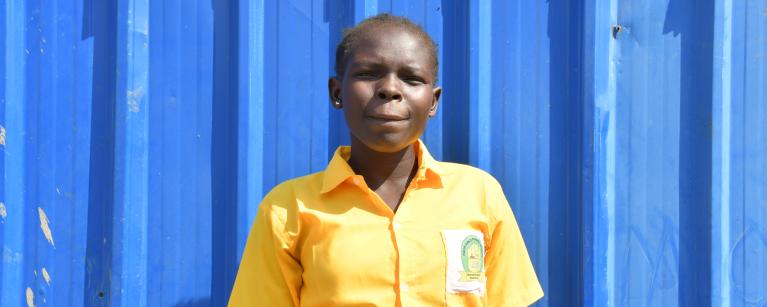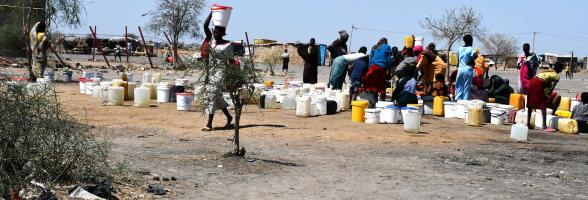In the Greater Pibor Administrative Area of South Sudan, the harsh realities of everyday life paint a challenging backdrop for children and young people striving for education. From holding lessons under the trees to walking long and dangerous trek to reach the nearest schools. This coupled with displacement due to flooding and conflict, hunger and cultural barriers make pursuing education for young people in South Sudan a challenging ordeal.
In Pibor town, we meet a 19-year-old, Ajus Oleyo Agut, who has defied all the odds which would deter many especially girl child to become the best student in the whole of Greater Pibor scoring 462 marks out of a total of 500 Marks in the recently concluded Primary Leaving Certificate Examinations.
Ajus's journey to academic success was anything but easy as she explains adding that with the unwavering dedication and the support of her teachers, she persevered.
“My teachers have been very supportive to me especially my headteacher, she has been motivating me every day and encouraging me to study hard for a brighter future. I did not take the advice for granted,” said the 19-year-old full of excitement.
However, Ajus's path almost took a different turn when the financial burden threatened to derail her dreams. Unable to afford the registration fee for the candidate class, she faced the prospect of dropping out.
“If I had not received assistance from Oxfam to register, I would not have sat for the examination. I could have dropped out because I know my parents would not have afforded the money,” recalls Ajus.
Like many girls her age,19-year-old Ajus has to also support her parents at home with house chores and taking care of her siblings in addition to her schoolwork.
“I intend to go to secondary school, but my only worry is my parents might not afford it. Secondly there is only one secondary school here in Pibor. This makes it hard for my parents to decide on a cheaper school where I can study,” explains Ajus.
The headteacher of Pibor Girls Primary School, Mary Longle Kapkap said she is very proud of the schoolgirls because all 13 in 2023 examination stream passed the examinations with flying colors.
According to UNICEF, South Sudan has one of the highest proportions of out-of-school children globally. Approximately 2.4 million children are out of school with a large proportion of schools damaged or closed from conflict and severe flooding.
School going children especially girls in South Sudan continue to bear the burden of either early marriage or staying home to take care of their siblings.
Ajus's story is not just one of personal triumph but also a testament of how education can change lives even in tough times. In a country where millions of children are out of school, initiatives like Education in Emergency project, supported by the European Union, are vital lifelines. The project has so far supported 1094 girls and 2453 boys in Pibor in 2023.
This comprehensive effort encompasses various facets including education, water, sanitation, hygiene (WASH), protection, and disaster risk reduction. In addition to ensuring safe water access for schools and the broader community, the project places special emphasis on enabling children, particularly girls, those with disabilities, and other vulnerable demographics, to access and sustain their education.

